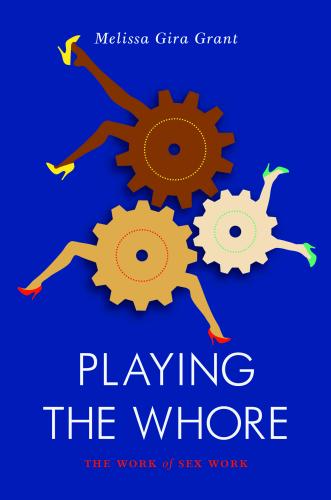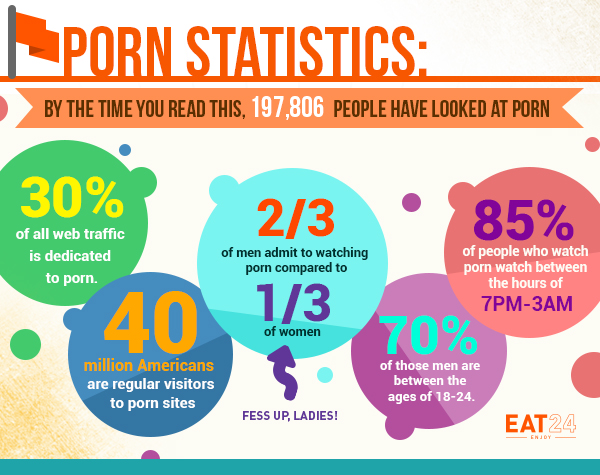.jpg)
PUTTING THE "WORK" BACK IN SEX WORK:
DECRIMINALIZING EARTH'S OLDEST PROFESSION
.jpg)
It is about time that people wake up to the reality that not every person who makes a living through prostitution, porn or other sex work is a lost, helpless soul that needs saving and nurturing. Most women who choose to be prostitutes chose the profession because it is an easy way to make money, not because they are morally depraved beings with no other choice. Porn stars do not go home and cry about how miserable they are because they get paid to have sex. If anything, what really hurts sex workers is not their choice of profession, but the stigma that surrounds it and the cold shoulder they get from the government and from the general public alike. Instead of pretending that sexual women are awful creatures that need Jesus, how about we treat them as working adults who still deserve health care, legal protection and peace of mind? If the American people really care so much about women's health, why not make sure that all women - regardless of their orientation, profession, or sexual endeavors - are protected and treated as human beings? Though sex work is the oldest profession known to man, the laws and views surrounding it are reminiscent of a Stone Age way of thinking.
PROSTITUTION AND SEXUAL HYPOCRISY IN THE UNITED STATES

Prostitution is one of the oldest professions in the world, and it is still illegal in every state besides Nevada (Wikipedia). What a person chooses to do with their own body is just that, their choice. Not in the eyes of the law, however. With arrests being made every day, the law has a harsh view when it comes to selling sex. Those who oppose the legalization of prostitution defend their arguments on the basis that sex work is demeaning and exploitative. For those adults who consciously make the decision to make their money having sex, it is not demeaning, it is simply the capitalization of an every-day, human act in order to sustain a comfortable living. Many who oppose it claim that the legalization of prostitution would further violence against women, not ease it (Slate). That is a terrible excuse, seeing as the legalization of the practice would then pave the way to proper legislation and guidelines. Though policymakers never give up the fight to keep it illegal, they often indulge in the so-called "demeaning" act after hours.
Politicians have been customers of prostitutes for years, even though they will often do anything in their power to keep that from becoming public knowledge. Since the 1970s (and indubitably before that), American politicians have been busted for fraternizing with prostitutes, including Clinton's political strategist in 1996 (US News), even though they preach how anti-sex they are. The most recent example of hypocrisy is Eliot Spitzer, a Democratic ex-governor from New York who was found to be a frequent client of a "sophisticated" prostitution ring (New York Times). In a 2013 interview the once-governor said that he believed that the business of prostitution was exploitive. That is an interesting change of heart for someone who was once a frequent customer, and who is still against the legalization of it today (Observer). The mentality that prostitution should be kept illegal is not just a close-minded approach, but one that puts countless people in danger which is the complete opposite of what a lawmaker should fight for.
The benefits of legalization would not only positively impact the health of millions of people, but would also benefit the economy as well. Illegal prostitution costs the taxpayers money, as it utilizes more police service in seizing "offenders" and also strains the judiciary system's time that could be spent assessing actual criminals, not sex workers (Examiner). Legalizing prostitution would greatly benefit the health of both sex workers and customers. With the business legalized, it would then be mandatory for all prostitutes to be regularly tested for sexually transmitted diseases (Liberator). The fact that these politicians pretend to ignore basic human urges and instead promote false messages of purity and holiness is no excuse for them to continue to block legislation that would increase jobs, generate profit and, more importantly, save lives.
AN INSIDE LOOK AT THE SILENCED WORLD OF SEX WORKERS

It is easy for publications and individuals who oppose the legalization of prostitution to formulate their own opinions of how sex workers, both porn stars and prostitutes, feel about their job choices. However, there is rarely a source of pure information and experience from the inside of the industry. Melissa Gira Grant, a journalist and former sex worker, published Playing the Whore: The Work of Sex Work as a means of shedding light on the inner workings of the sex industry as well as the mentality of many women who choose the profession. In her personal case, Grant was one of the first ever webcam girls, and made a living for herself by doing do. She did not turn to working for the sexual side of the internet out of desperation, but because she wanted to be able to afford to pursue her real career dream of being a writer. Being a webcam girl made that a reality for Grant. Her book reverses the interrogation, and instead of questioning why people choose to do sex work and criminalizing them for it, she questions why policy makers and the media find it so difficult to acknowledge the sex industry as the real industry that it is.
The sex industry in the United States - the underground sect of it that people like to pretend does not exist - generates millions of dollars annually, so it is ignorant to go on assuming that the selling of sex is not real work or a lucrative business. In 2007, a study funded by the Justice Department estimated that the underground commercial sex economy had generated between $39.9 and $290 million (Urban Institute). However, Grant pointed out a huge flaw in the study during an interview with MSNBC (Melissa Gira Grant). Though it's inarguable that the underground sex industry does generate a wealth of money for the national economy, the study only covered certain aspects of the industry, and did not gather a wide range of realistic points of view from actual sex workers. The study, while somewhat helpful in highlighting the (partial) profit margin of the sex industry, still keeps it in a negative box. Among those interviewed about it, many were incarcerated or in some type of "diversion" program for prostitutes. The choice to focus on a subsection of the grand sex industry just reiterates for the public how "bad" and "sleazy" the industry is, instead of making people aware of all sides of it. Grant does a great job of speaking up for those unrepresented in the study, who consciously choose sex work as a means of making money, and making the most crucial point that these people still deserve access to health care, legal protection and safety.
In her book, Grant argues the valid point that sex workers view what they do as work, as a means of survival. Therefore, these women should be regarded as any other working woman, not a derelict of society. In America, the fight continues on to bring awareness and information to the public eye in order to recognize prostitutes and porn stars as part of the country's workforce. If sex workers of all parts of the industry continue to be treated as criminals and damaged souls, the cycle of misinformation, death, and disease will continue to ravage not just those who take part in sex work, but America's uninformed youth as well.
LEGALIZED PROSTITUTION ABROAD: WHY CAN'T WE TAKE THE HINT?

Prostitution is not illegal worldwide, and in the countries where it is legal, sex workers and customers alike benefit from the legally regulated industry. In the Netherlands, particularly in Holland, prostitution is a legal, government-regulated business. Amsterdam is known for its liberal view on various subjects, and its choice to honor sex work as a rightful part of the economy is not just for the sake of fun or pleasure, but for protection and health. Germany's decision to legalize prostitution obviously attracts a lot of tourists and generates revenue from countries that are not quite as liberal about the issue, but most importantly, it offers safety regulations for the women who choose sex work as their sole source of income. Though the legislation is not 100% effective in preventing all dangers to prostitutes, it does offer a variety of benefits to both the prostitutes and the rest of society. In countries like Germany, where prostitution is legal, some sex workers have the choice to make legal contracts with clients. The prostitutes' income can be taxed to fund health care for the sex worker as well as guarantee a normal 40-hour work week like any other profession (Procon).
Germany has also legalized the practices of pimping and the ownership of brothels. While the legislation still needs to be strengthened to better protect those in the industry, the country's choice to make sex work legal is a huge step forward in terms of health and keeping violence in check. Many studies conducted on the subject of legalized prostitution abroad give confusing results that suggest the legislation has done nothing to make working conditions safer for women or the customers they serve. However, the skewed results may be reflective of the fact that there are political forces in Germany that are against the industry as a whole, and therefore paint a more dangerous picture of the reality for the public.
It is estimated that 63% of Germany's prostitutes are actually immigrants from neighboring countries in which the work is still illegal (West Info), which may offer even more confusion to the statistics surrounding the sex business there. An article from the Global Post gives a more realistic insight to the conditions of the current sex business, whereas many other news sources completely denounce the fact that positive legislation has benefited prostitutes. The article mentions a well known German feminist who has launched an entire media campaign against the country's liberal approach to sex work, and she claims that the laws are keeping prostitutes and other civilians in danger. Alice Schwarzer, a feminist magazine editor, says that since the number of country's prostitutes has doubled since the legalization, and that that is the reason why human trafficking cases and exploitation have not declined (Global Post). Schwarzer's research is a prime example of people exaggerating the truths about the overseas sex industry as part of a mass attempt to keep things liberally clean. Contrary to her research, it was mentioned in the Global Post article that according to police records, cases of human trafficking had dropped by a third between 2001 and 2011.
The legislation in Germany needs to be tighter, this much is true. But the United States needs to follow suit and legalize the business of selling sex in order to save lives, improve health and decrease instances of violence for its own citizens. The sex economy in our country is not going anywhere no matter what the legislation is, so it is best to do as much as possible legally and politically to protect these women as working people and human beings. In San Francisco, it was found that 82% of prostitutes had been assaulted and 68% had been raped while working (Business Insider). Strengthening prostitution laws would greatly ease these numbers and at the minimum give women affected a chance to take the issue to court. With current laws against prostitution, women harmed in the process of working are reluctant to call the police. Legalized prostitution in the States would also be a profitable source of income for the government, both in terms of taxes paid by workers and with money being saved on use of police forces to waste time on prostitution arrests.
THE UNITED STATES OF PORN HATES PORN STARS

Guess which country is the most uptight about porn? America. Guess which country watches porn most frequently online? America. The irony just keeps getting better and better, but it is honestly a dangerous cycle of closed-minded thinking that will continue to put both porn workers and those who watch it in danger health wise. The act of watching porn is often lumped together with actual criminal activity, like hard drug use and theft. Americans like to go about every day life living in some pristine illusion of the Church, as if the porn industry does not exist and that anybody who does watch it is a screwed up individual. A 2006 report revealed that Americans are not quite as prude as they let on, seeing as 40 million of them watch porn regularly (Huffington Post).
Unsurprisingly, many politicians who like to pretend they are protecting some form of Christian family values continuously attempt to ban pornography altogether, which obviously isn't going to deter anybody from masturbating or from acting on sexual impulses. In 2012, notorious Republicans Mitt Romney, Rick Santorum and Newt Gingrich announced that they would openly enforce laws that would prohibit the distribution of pornography (Raw Story). Romney, a supporter of anti-gay legislation as well as a flip-flopper when it comes to views on birth control (Mother Jones), also played the fake family values card when commenting on the matter. He stated that it was “imperative that we cultivate the promotion of fundamental family values.” The irony is almost astounding. Christian politicians and the religious elite act as if they are so repulsed by masturbation and against any form of sex outside of procreation, and publicly state that sexual activity is sinful and destructive. However, 50% of Christian men and 20% of Christian women admit to being porn watchers (Covenant Eyes).
CHRISTIAN AMERICA: A SEXUAL WOMAN IS LOST, DESERVES HARASSMENT
.jpg)
[Belle Knox, the Duke University woman turned adult star]
Given the amount of people who watch porn on a regular basis, it is an absolute shame the way that the American public reacts to sex in every day situations. Youths are shamed for indulging in consensual sexual exploration instead of being taught the realities and the risks. Porn stars, when not being filmed, are treated like the scum of the earth by the general public. The subject of porn is hushed so ignorantly that it is sickening. The same individuals clicking on porn links three times a week are the same ones who are quick to shame the person who actually participated in the porn. Stigmas affect all genders and sexualities when it comes to porn acting, but no group receives more slack than women. A nightmare for the Church and for most of uptight America is a woman who is sexually active and not ashamed of her sexuality.
Recently, when it was ousted that a freshman woman from Duke University was supporting herself and paying for college through her work in the porn industry, she was immediately slammed by the media, taunted by her colleagues and simply belittled for her choices. Miriam Weeks, who performs under the name Belle Knox for adult films, has received death threats for her decision to make porn films (NY Daily News), and has faced scrutiny from on-campus peers as well as the American media. She is widely positive about her decisions, stating that she did not feel exploited, but empowered by her choice to participate in porn to pay her way through school. The fact that the public is running wild with this story and that a young woman is made to feel like a criminal simply for having sex as a job reflects a national level of ignorance and intolerance that will continue to run rampant until the porn industry is recognized as a legitimate workforce, and gains the healthy, positive legislation that it deserves.
It has now been several weeks since Knox was ousted by a classmate for her adult film identity, and the backlash is really at a peak. How is one young woman's decision enough to stay relevant in the media for so long? Why is it that people are so caught up on "punishing" this woman for taking control of her life, ridding herself of student debt and enjoying the work she does? It is sickening how much negative attention Knox has received, and how little scrutiny the educational system receives for the way it criminally sucks young people into a life of financial imprisonment.